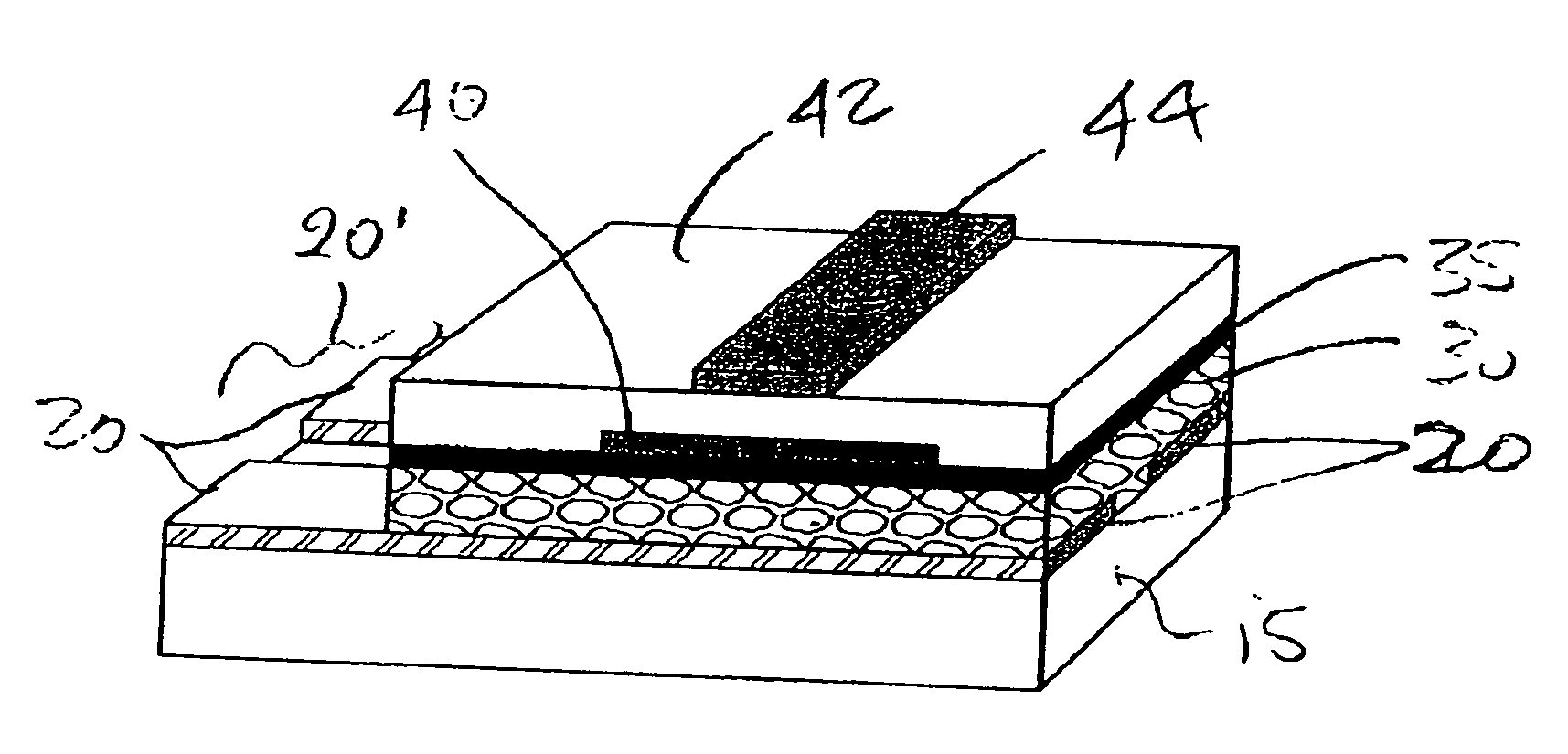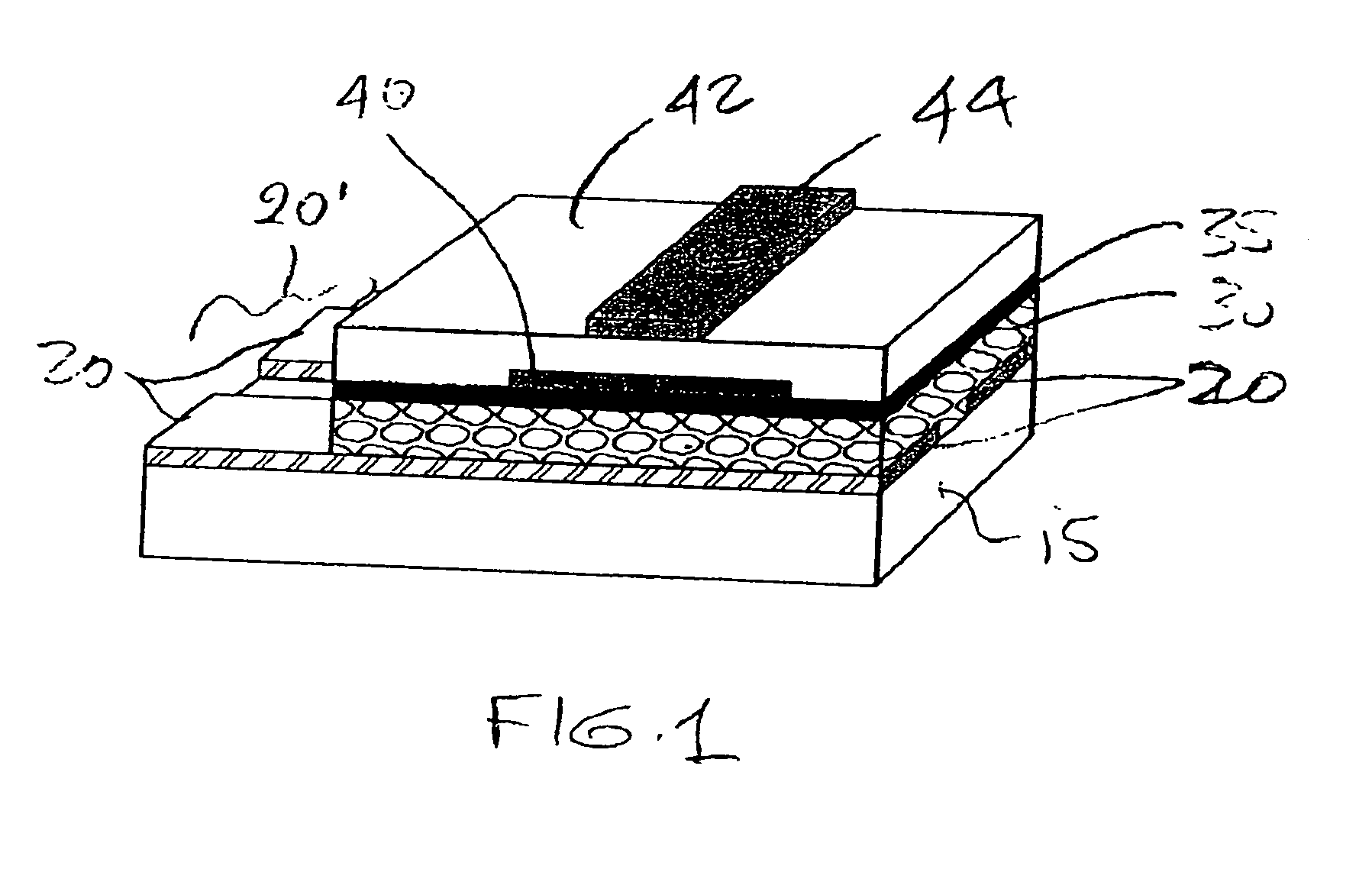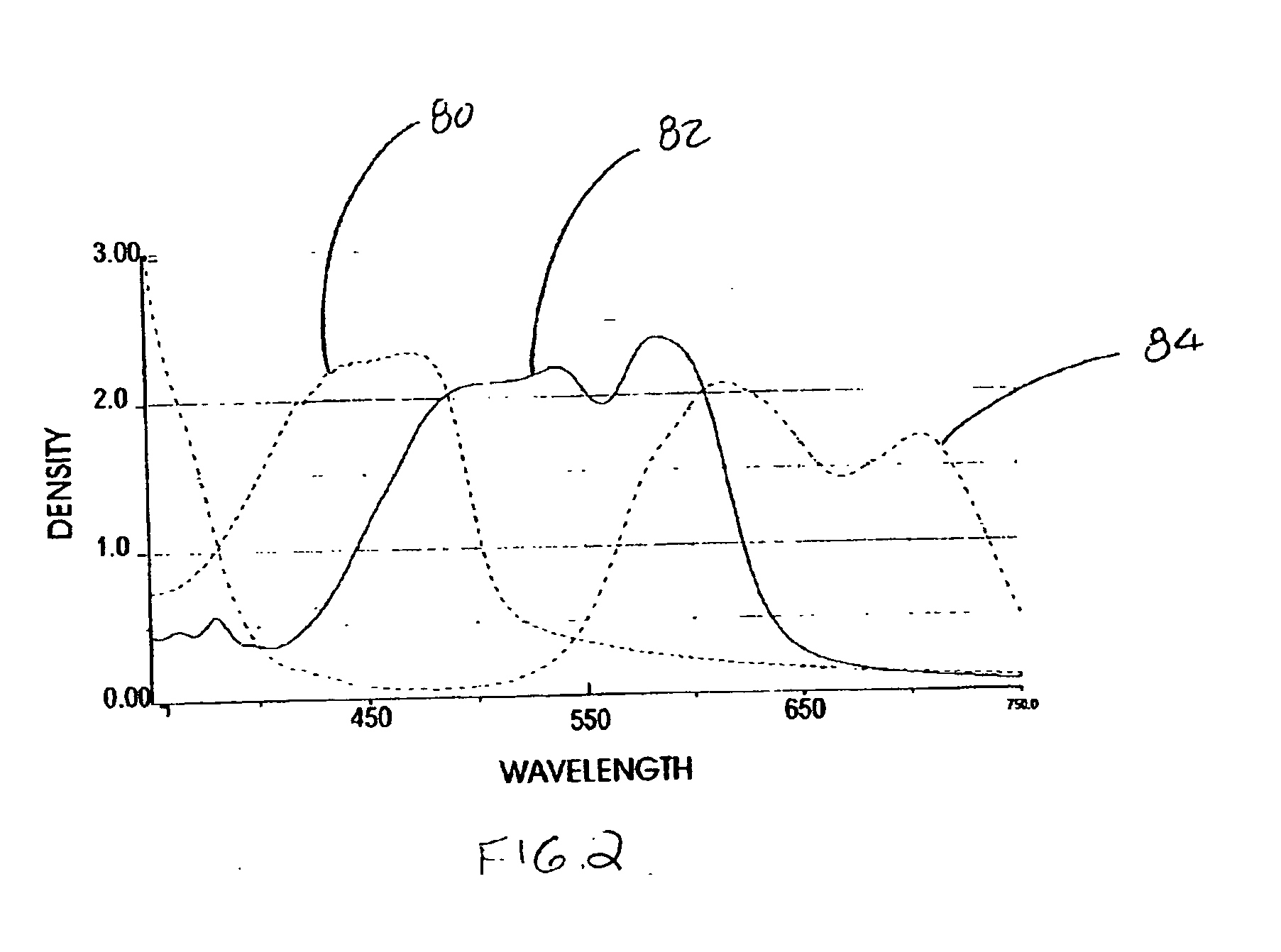Mixed absorber layer for displays
- Summary
- Abstract
- Description
- Claims
- Application Information
AI Technical Summary
Benefits of technology
Problems solved by technology
Method used
Image
Examples
example 1
Invention Embodiment
[0139] This example illustrates the preparation of pigment dispersions suitable for use in the dark layer of a display according to the present invention. A dispersion of colorant Pigment Yellow 4G was made by combining 50 g Pigment Yellow 4G VP2532 (Sun Chemical Corp.), 602.5 g of a 10 wt % aqueous solution of n-methyl-n-oleoyl taurate potassium salt, 137.5 g deionized water, and 625 ml 1.8 mm zirconium oxide beads in a 1250 ml glass jar. The mixture was rolled on a roller mill at a speed of 83 ft / min for 5 days. After milling, the dispersion was diluted with high purity water. The final dispersion contained 18% pigment by weight, with an average particle size less than 0.2 microns. The dry coverage of the yellow pigment for this example is was 0.03 g / m2.
[0140] A set of experimental dispersions were made of various pigment colorants milled to less than a micron mean diameter. A dispersion of colorant Pigment Blue 15:3 was made by combining 50 g Sunfast Blue.RT...
example 2
Control
[0144] This example illustrates the preparation of pigment dispersions suitable for use in the dark layer of a display. A dispersion of colorant Pigment Yellow 4G was made by combining 50 g Pigment Yellow 4G VP2532 (Sun Chemical Corp.), 602.5 g of a 10 wt % aqueous solution of n-methyl-n-oleoyl taurate potassium salt, 137.5 g deionized water, and 625 ml 1.8 mm zirconium oxide beads in a 1250 ml glass jar. The mixture was rolled on a roller mill at a speed of 83 ft / min for 5 days. After milling, the dispersion was diluted with high purity water. The final dispersion contained 18% pigment by weight, with an average particle size less than 0.2 microns. The dry coverage of the yellow pigment for this example is was 0.04 g / m2.
[0145] A set of experimental dispersions were made of various pigments milled to less than a micron mean diameter. A dispersion of colorant Pigment Blue 15:3 was made by combining 50 g Sunfast.Blue. RTM Pigment Blue 15:3 (Sun Chemical Corp), 602.5 g of a 10...
example 3
Control
[0149] This example illustrates the preparation of pigment dispersions suitable for use in the dark layer of a display. A set of experimental dispersions were made of various pigments milled to less than a micron mean diameter. A dispersion of colorant Pigment Blue 15:3 was made by combining 50 g Sunfast Blue.RTM. Pigment Blue 15:3 (Sun Chemical Corp), 602.5 g of a 10 wt % aqueous solution of n-methyl-n-oleoyl taurate potassium salt, 137.5 g deionized water, and 625 ml 1.8 mm zirconium oxide beads in a 1250 ml glass jar. The mixture was rolled on a roller mill at a speed of 83 ft / min for 5 days. After milling, the dispersion was diluted with high purity water. The final dispersion contained 18% pigment by weight, with an average particle size less than 0.2 microns. The dry coverage of the cyan pigment for this example is was 0.16 g / m2.
[0150] A dispersion of colorant Pigment Red 122 was made by combining 50 g Sunfast.RTM. Magenta Pigment Red 122 (Sun Chemical Corp.), 602.5 g...
PUM
| Property | Measurement | Unit |
|---|---|---|
| Fraction | aaaaa | aaaaa |
| Fraction | aaaaa | aaaaa |
| Percent by mass | aaaaa | aaaaa |
Abstract
Description
Claims
Application Information
 Login to View More
Login to View More - R&D
- Intellectual Property
- Life Sciences
- Materials
- Tech Scout
- Unparalleled Data Quality
- Higher Quality Content
- 60% Fewer Hallucinations
Browse by: Latest US Patents, China's latest patents, Technical Efficacy Thesaurus, Application Domain, Technology Topic, Popular Technical Reports.
© 2025 PatSnap. All rights reserved.Legal|Privacy policy|Modern Slavery Act Transparency Statement|Sitemap|About US| Contact US: help@patsnap.com



